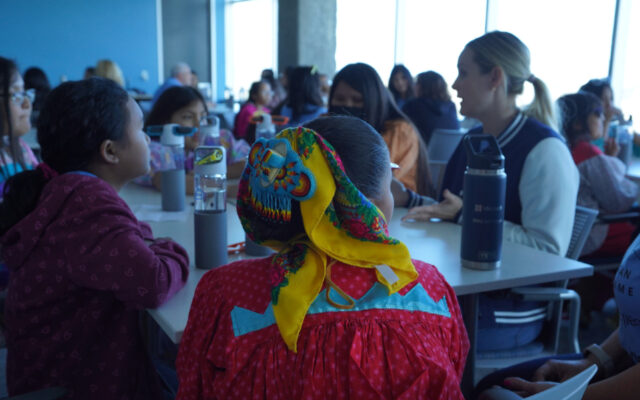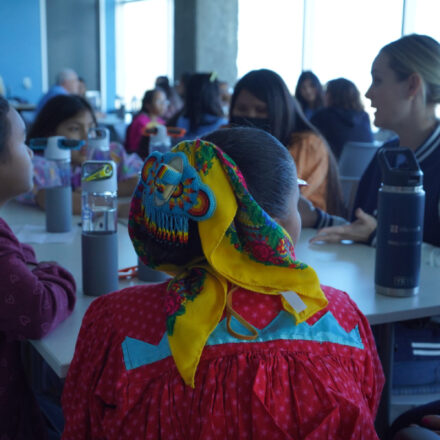Did you know that in cutting-edge fields like artificial intelligence (AI), about one in five professionals are women? The lack of gender parity and representation in the industry that’s driving our society forward is a disheartening and recurring theme. Dell Technologies is actively working with our partners to change that for the next generation.
The Girls Who Game (GWG) program started in 2019, in partnership with Microsoft and Intel. GWG provides underrepresented students the opportunity to explore science, technology, engineering and mathematics (STEM) through real-world gaming simulations. In the last five years, GWG has grown to include more than 75 clubs in each spring and fall cohort across the United States, Canada, Trinidad and Tobago, Australia and New Zealand.
By integrating fun and gaming into the learning process, we’re fostering a passion for STEM and equipping young people with the essential tools to thrive in the modern workplace. Dell is proud to be a part of this exciting journey, where gaming becomes a pathway to a successful future.
This week, in honor of International Women’s Day, GWG is honoring the annual celebration event, GWG Inspiration Day. On this day, we celebrate the accomplishments of girls and women in STEM and spotlight individual clubs and students who have made a positive impact in their communities through the program.
From Screens to Success
Some of the incredible success stories of our program include students from the San Carlos Apache Tribe in Arizona to Los Angeles-California–based Crete Academy and others in the Buffalo Public Schools district in Buffalo, New York.
In Arizona, Dell, in partnership with Hesperus, a U.S. non-profit investing in the next generation of Native American and Alaska Native leadership, brought GWG to the San Carlos Apache Tribe. In Minecraft, the students created a digital world that looks like their reservation and used the digital world as a learning tool to help solve problems like technology access and cultural preservation.
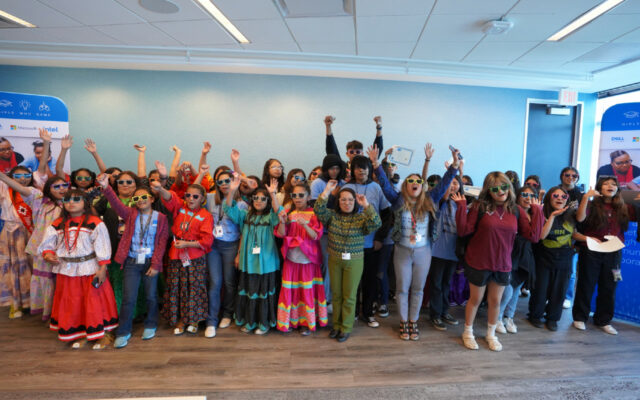
“The leadership skills and pride in being part of the Girls Who Game program was obvious. The students latched onto this program because of the focal point on the sustainability of our reservation. It was clear that the program not only enhanced their self-identity of being an Apache, but also led to positive changes for our tribes.”
– Roberta Patten, Girls Who Game coach – San Carlos Apache tribe
Last month, program partners gathered at the Microsoft office in Tempe, Arizona, to celebrate the San Carlos Apache GWG clubs, which grew from eight to 44 students this year. The celebration included the teams presenting their solutions and a mentoring session between students and corporate volunteers. The young students demonstrated firsthand how they can use technology to express their pride in their community, collaborate with peers and tribal leaders and find creative solutions to their own community challenges.
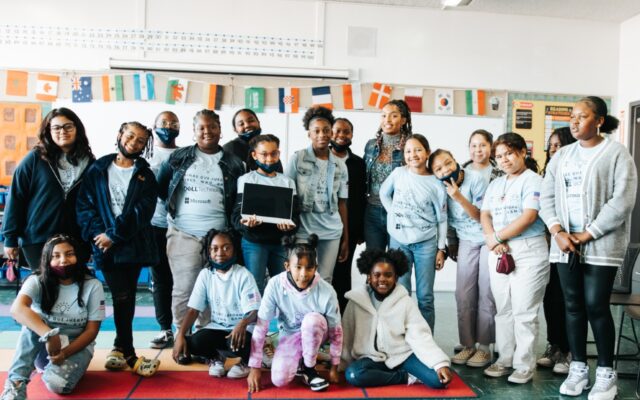
The Crete Academy, which provides education to elementary students experiencing homelessness and poverty, joined the GWG program in August 2022. Since then, it has brought unique and rewarding experiences to young female students in STEM and gaming, helping them develop skills like problem-solving and community building.
Even amidst the challenges of the COVID-19 pandemic, Buffalo Public Schools in Buffalo, New York, initiated a GWG program in 2020, evolving from a small team to a multi-school program involving 80 girls in 10 schools. In 2023, eighth-grade members of the school district’s Student Technology Leadership Program presented information on digital citizenship and fake news to the GWG teams, who used that insight while building their own solutions in Minecraft—an example of the real-world problems these students are learning to tackle together.
“Our district decided to embed GWG into the school day to make the program more accessible to all, and we have noticed a trend, that it has encouraged better school attendance and higher academic achievement. The students enjoy coming to school due to the confidence and enjoyment they find through learning. Many of them have since moved into leadership roles on our district’s Student Technology Leadership Program, where they assist their peers and teachers with technology issues and have an interest in pursuing a STEM career in the future.”
– Rebecca Fast, Girls Who Game coach – Buffalo Public Schools
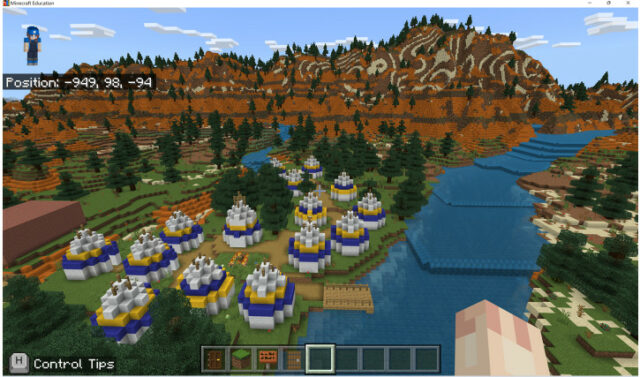
Working Toward a More Digitally Inclusive Tomorrow
GWG is just one example of Dell’s commitment to advancing digital inclusion and ensuring all individuals have access to and can use technology to participate in an increasingly digital society. In partnership with our network of global nonprofits, customers, industry peers and dedicated team members, we’re proud to do our part to build a more equitable, representative future and improve access to the digital skills needed for the next generation to thrive.
Supported by a team of dedicated experts, Dell is committed to improving one billion lives through digital inclusion by 2030. Learn more about this commitment, our programs and partnerships by visiting Dell’s Digital Inclusion website.
